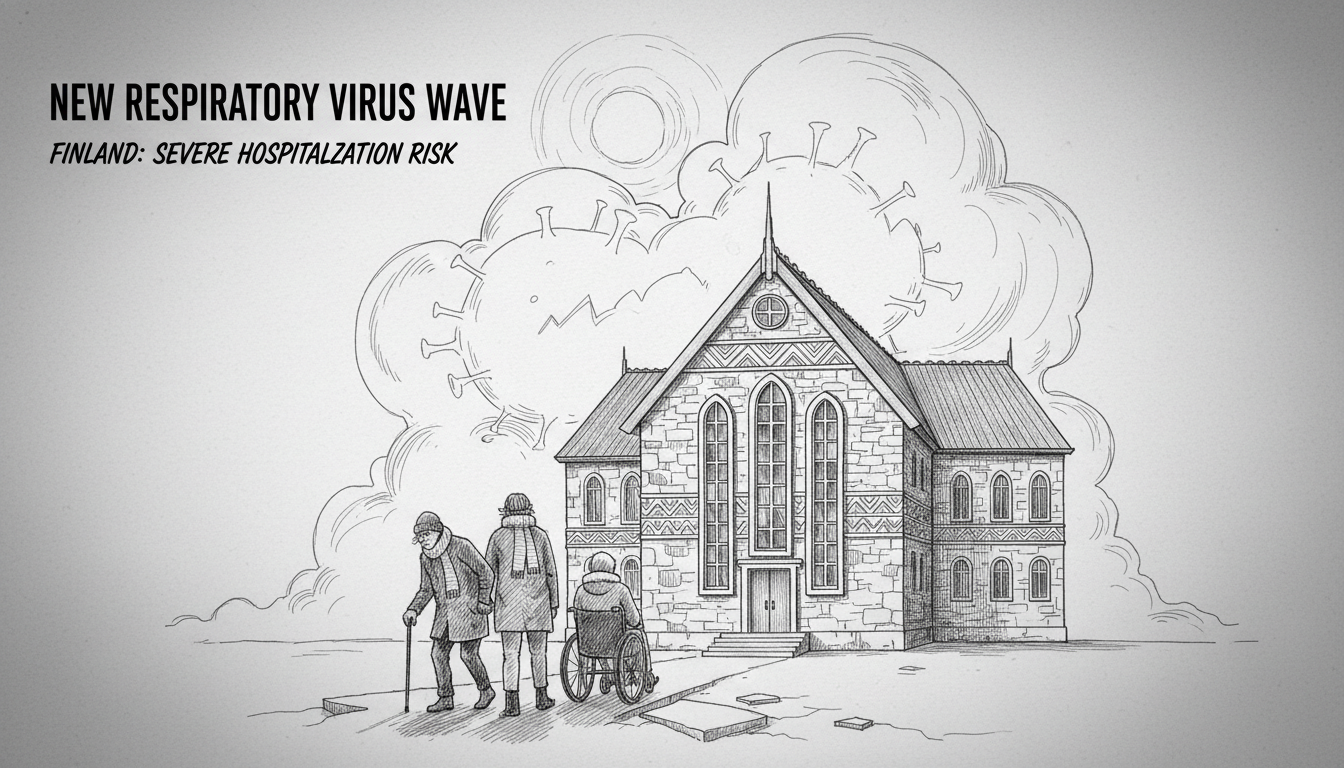A dangerous respiratory virus is gaining strength in Finland as the country enters the peak season for respiratory infections. RSV, or respiratory syncytial virus, causes flu-like symptoms but poses greater risks than standard influenza for vulnerable populations. The virus typically circulates from November through spring, with peak activity occurring every other year during odd-numbered years.
Medical experts warn that RSV can lead to weeks of severe coughing and breathing difficulties. While many experience mild symptoms, the virus sends approximately 1,600 Finns to hospitals annually. Between 4,000 and 8,000 RSV infections get confirmed each year in Finland, though many more cases likely go undetected.
Heikki Ekroos, chief physician of pulmonary diseases at Helsinki University Hospital, explains the pattern. 'The peak season always occurs every other year during odd-numbered years. The season typically starts in early November and gradually subsides through spring,' he said in a recent briefing.
Recent data reveals concerning trends about RSV's severity. Hospitalized RSV patients in Finland die at more than double the rate of influenza patients. The virus particularly threatens infants, elderly citizens, and people with underlying health conditions like diabetes, asthma, or heart disease.
What makes RSV particularly concerning is its ability to cause serious complications even in otherwise healthy adults. Patients over 60 face the highest risk of hospitalization. Recovery can take an exceptionally long time, especially for older individuals who may develop secondary bacterial pneumonia.
Doctors cannot distinguish RSV from other respiratory illnesses like influenza or COVID-19 based solely on symptoms. Testing typically occurs only when patients require hospital care or emergency services. This means many people likely have RSV without knowing the specific virus causing their illness.
Finland currently evaluates whether to include RSV vaccines in the national vaccination program. Vaccines already exist and remain available by prescription for those in high-risk groups. Medical authorities recommend that newborns now receive antibodies to prevent severe infections.
Unlike some viruses, contracting RSV does not provide lasting immunity. 'If you have particularly bad luck, you could get sick in early November and then again in late February. You can get two RSV infections within the same winter season,' Ekroos noted.
Recent monitoring shows the epidemic hasn't fully emerged yet. Finland's infectious disease registry recorded only eight RSV cases during November. Wastewater surveillance also detected no RSV virus between September 1 and November 1 this autumn.
Beyond immediate respiratory symptoms, Danish research suggests RSV infections may increase cardiovascular disease risks. This adds to concerns about the virus's long-term health impacts beyond the initial illness.
Medical professionals advise seeking care when fever persists for extended periods or breathing becomes difficult. Early intervention can prevent complications that might require intensive care treatment.
The situation highlights the ongoing challenge of seasonal viruses in Nordic countries, where indoor crowding during colder months facilitates viral spread. Health authorities balance prevention efforts against practical realities of living through winter in northern climates.

